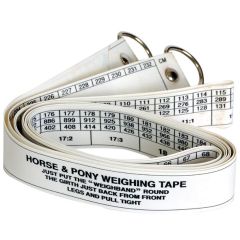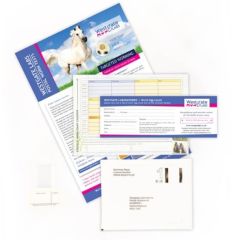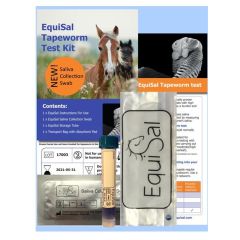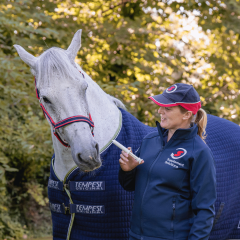Are you up to date with worming advice?
Targeted worm control is becoming increasingly important for horse owners, to help prevent the problem of parasite resistance to the treatments available.
What Is Targeted Worm Control?
Worming advice has changed in recent years. Good worm control starts with testing your horse regularly and routinely throughout the year and only administering worming treatments when they are needed.
Resistance to active ingredients within wormers is of a growing concern. Worms that commonly infect our horses are evolving to become resistant to some active ingredients, especially those that have been used for a long time. This means that worming treatments cannot be solely relied upon to keep our horses worm free. It is much better to test first and pinpoint the worm burden in specific animals during specific times of the year. By doing this, wormers are then being used more sparingly and so they stay effective for when worming treatment is necessary.
Whether you have just one horse who has individual turnout or run a yard with lots of horses and mixed turnout, a targeted worming approach can and will work for you. Redworm, Roundworm, and Tapeworm are the biggest pathological threats to horses and are easily tested throughout the year without having to ring your vet.
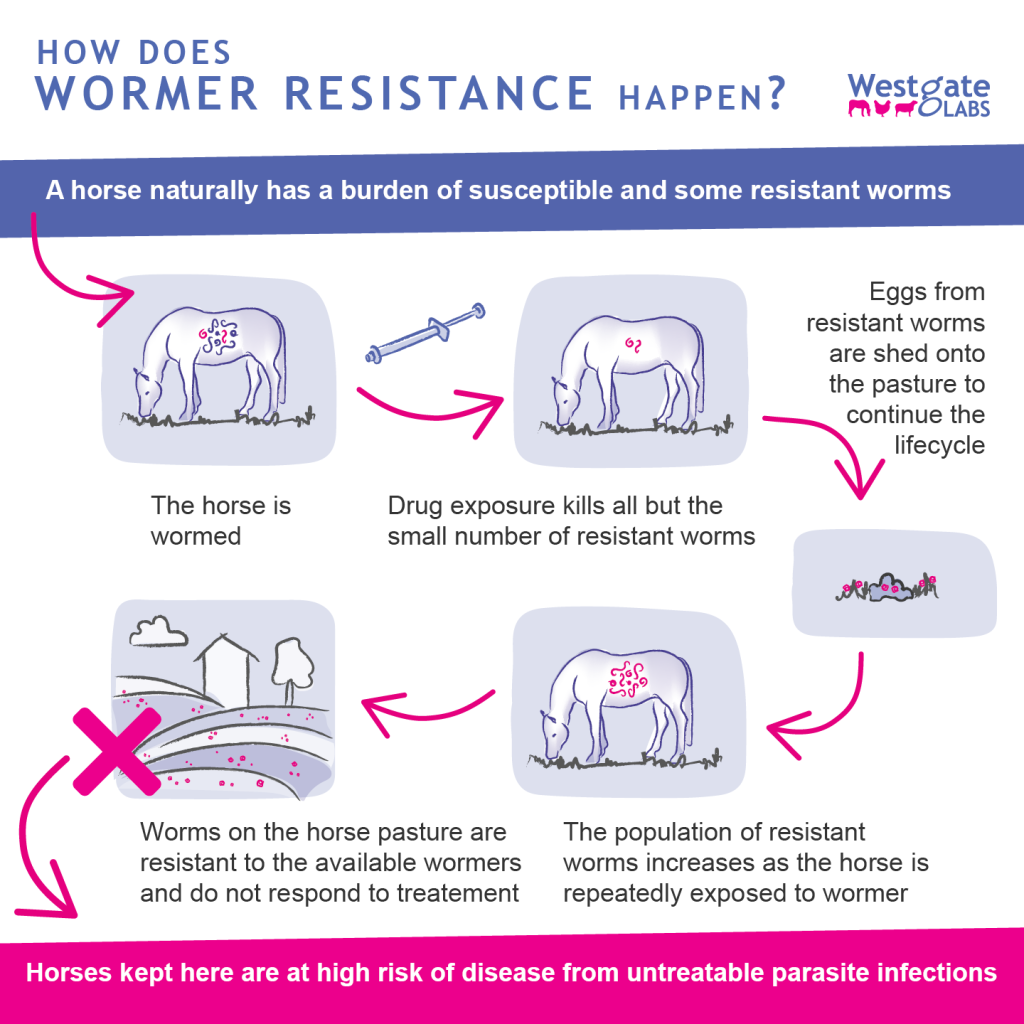
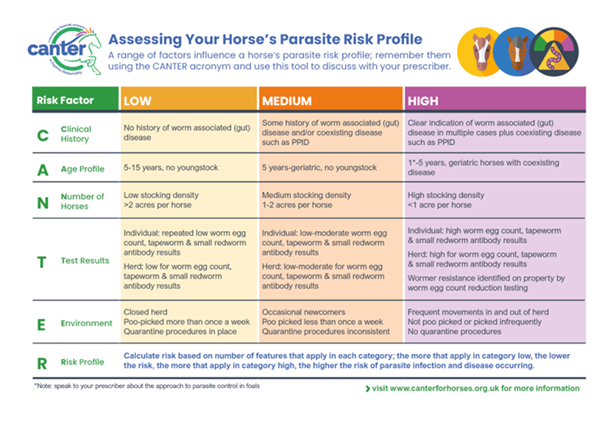
When Do I Test For What?
Winter: December – February
- Decide how you would prefer to approach encysted redworm: Will you test through your vet or treat?
- Have you tested for tapeworm in the last 6 months? Use an EquiSal test if required.
- Are you in an area where you must consider the threat of bots?
In the winter, there is a dangerous stage of small redworm that horse owners need to be particularly aware of as the consequences can be fatal if left untreated. Winter is the season to consider how to tackle the possibility of encysted redworm by either blood testing or using an appropriate wormer.
If treatment is necessary, consider using a wormer that contains Moxidectin. You can use a 5-day course of Fenbendazole for youngsters or very lean horses. You may also choose to carry out a reduction test to ensure that the worming treatment has been effective.
WARNING: Moxidectin shouldn’t be given to underweight horses or young foals and is not licenced for donkeys. When treating miniature Shetlands or other small breeds, always calculate the dosage as accurately as you can. Moxidectin is stored with body fat and these animals do not have sufficient stores to take up the active ingredient.
Blood tests are advised to be carried out for horses with a low risk of redworm. This means that if your horse has previously had Faecal Worm Egg Counts of less than 200epg over the last 12 months, is in a closed herd, and your paddock management is to a high standard.
However, if your horse has been tested to have Faecal Egg Counts of 200epg or more throughout the last 12 months, then they are considered to be of high risk. A Blood test may therefore be inappropriate, and so a treatment would be necessary for these horses.
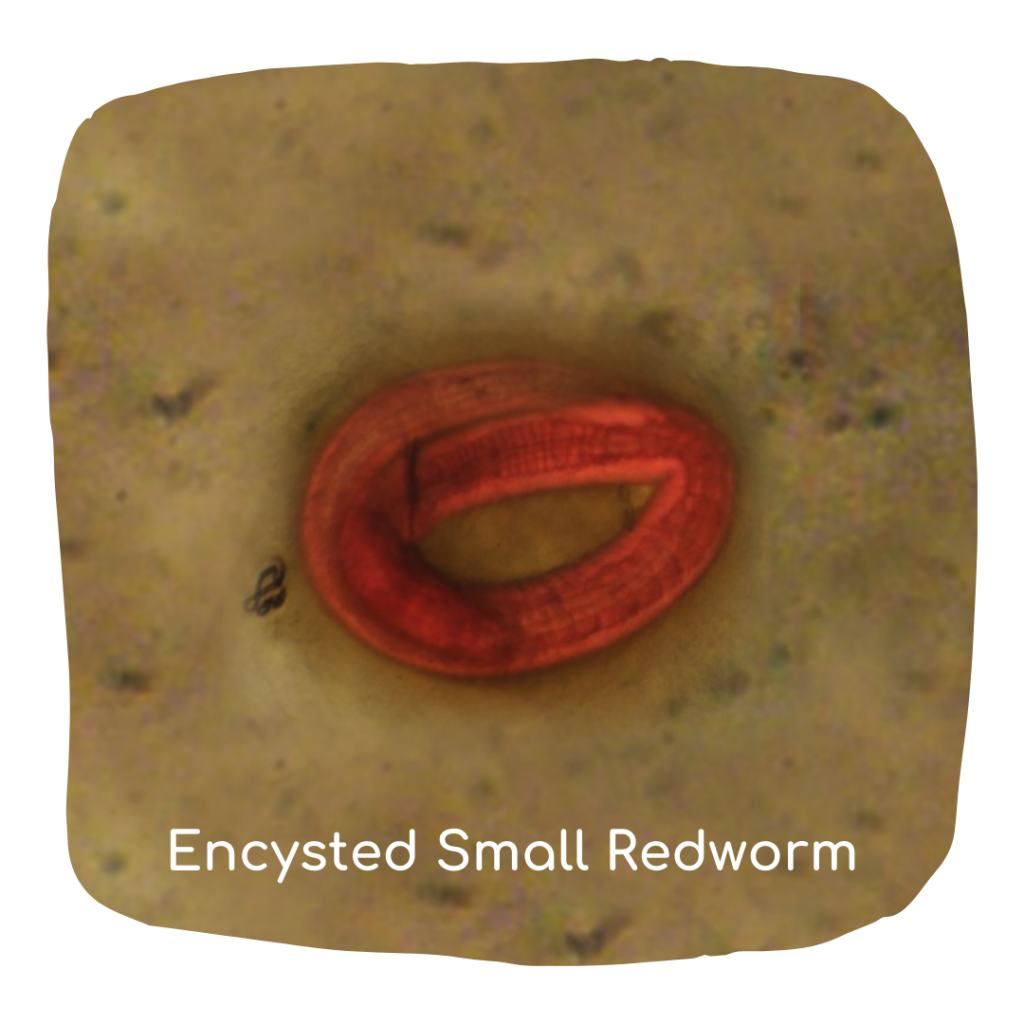
If you are choosing to treat for encysted redworm (use the chart above to help assess your horse), then treating between December and February with your chosen wormer is the best option. It is best to wait until the daytime environmental temperature has fallen to below 6 degrees Celsius for a few days, as small redworm activity slows considerably to the pasture. Worming after this time reduces the risk of reinfection. However, if the winter stays mild throughout the temperature doesn’t quite drop this low, worm regardless before the end of Winter.
Worming after the first frost is traditional advice amongst horse owners as this will kill off any bot flies and prevents bot eggs from being laid in the horse’s coat where they may be ingested.
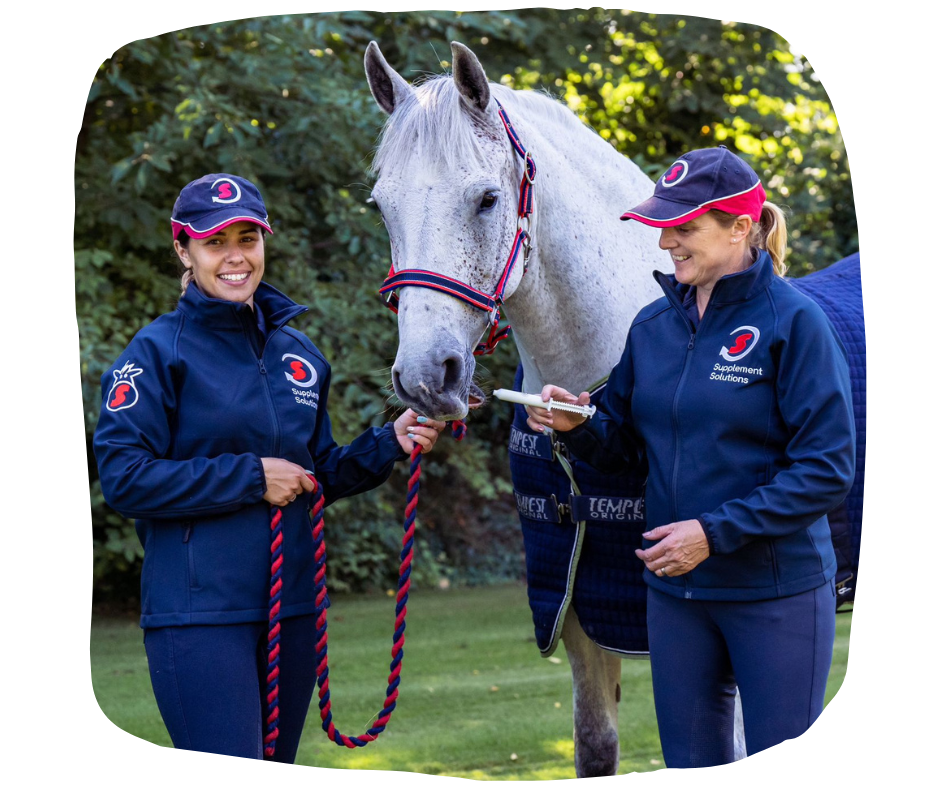
Spring: March – May
- Carry out worm egg counts for redworm and ascarids.
- EquiSal Saliva Tapeworm Test.
- Look out for signs of pinworm.
- Plan carefully for any foaling mares
If you treated or blood tested for encysted redworm in the Winter, then Spring is the perfect time to resume regular testing for roundworm and redworm.
Tapeworm testing is encouraged to be taken out every 6 months in the Spring and Autumn. Target tapeworm by using an EquiSal Saliva Test to determine if treatment is necessary or not; it has been found that only 27% of horses that are tested for tapeworm actually require treatment. There has been recent evidence to show that tapeworm treatments (Praziquantel and Pyrantel Embonate) are showing signs of resistance (Nielsen, 2023) and so testing before treating is of upmost importance.
Perennial Pinworm is another parasite to keep an eye out for. Watch for signs of tail rubbing or general discomfort, a sticky substance around the bottom or bean-sprout type worms in their droppings. You can carry out a pinworm test if you suspect that there may be a problem.
If you are expecting foals on the ground this year, then take extra care when testing and treating mares and foals.
Summer: June – August
- Carry out Faecal Worm Egg Counts every 6-12 weeks.
- If you treated for tapeworm in the Spring, then it is time to carry out a follow up EquiSal Saliva Tapeworm Test.
- Look out for bots, pinworm, and ticks.
Routine worm counts should form the base of your Summer worming programme. For healthy adult horses, three monthly intervals will suffice. Horses that tested in the Spring are now due for a follow up test. Youngstock or rescued horses or those with a history of high worm egg counts, conducting testing every six to eight weeks is more appropriate.
These gaps between tests are advised based on the lifecycle of the small redworm which can be completed in as little of five to six weeks. This means that a parasite infection can develop very quickly amongst your herd or individual horse.
It may be appropriate to carry out routine tapeworm testing in the summer as well. Tapeworm eggs are carried by mites within the pasture, which are active on grassland throughout Summer and can be easily ingested by the horse while grazing.
If your horse does require treatment for redworm in the summer, a second Faecal Worm Egg Count should be carried out 10-14 days after administering your worm treatment to test for the efficiency of the wormer.
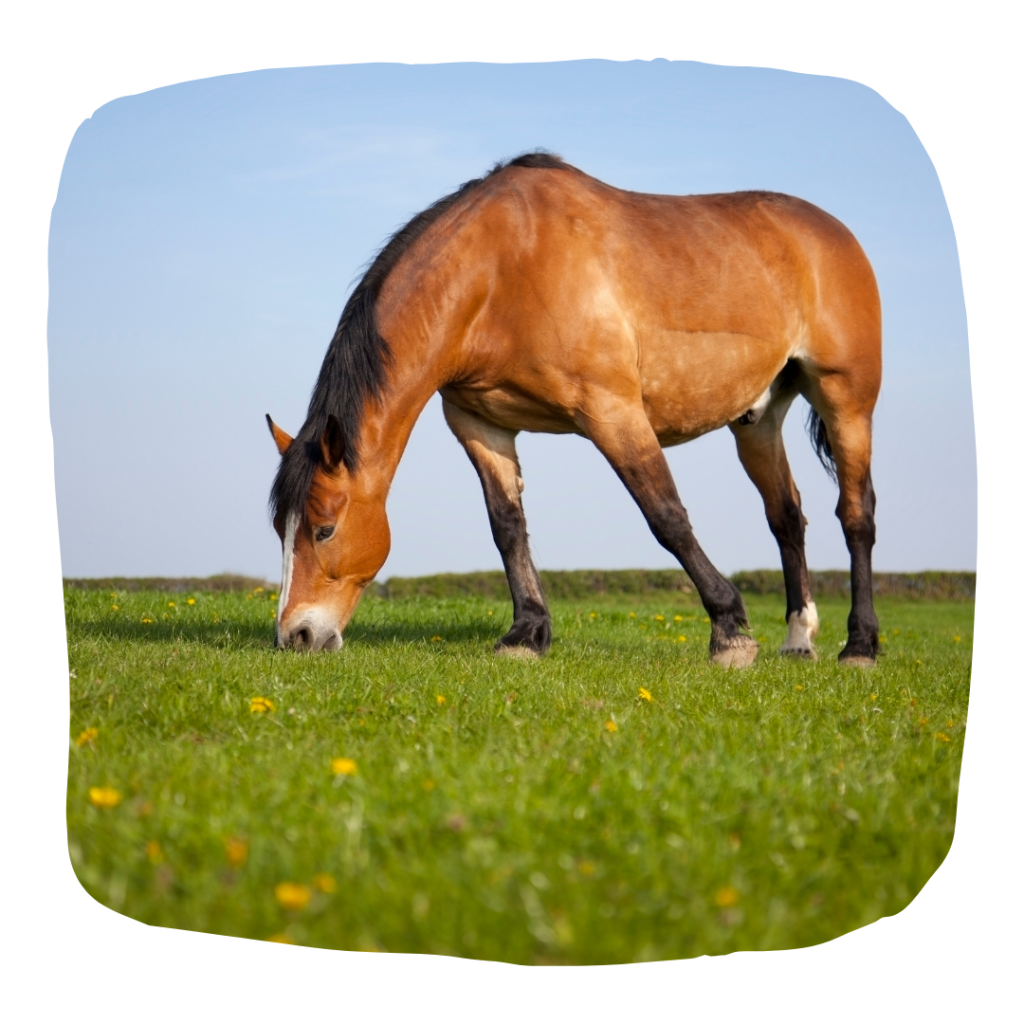
With summer flies always brings the potential for bots to lay their yellow, torpedo shaped eggs on your horse’s legs or shoulders. Try to remove these with a bot knife where possible as your horse may ingest these and thus begin their lifecycle. They are easily treated by Ivermectin or Moxidectin, however, prevention is always better than cure!

Autumn: September – November
- Carry out Faecal Worm Egg Counts every 8-12 weeks.
- EquiSal Saliva Tapeworm test.
- Look out for signs of bots, pinworm, ad ticks.
Autumn is traditionally known as ‘tapeworm time’ and can be a useful way to remember to target tapeworm. Which test to carry out and when will depend on your personal management routine and risk factors to consider for your horse. Young, old, and rescue horses will need more consideration at this time of year than healthy adult horses.
Always test before treating. Especially after a warm and wet summer period as this is ideal conditions for parasites to thrive, and so it is of most importance to keep a close eye on redworm and ascarid activity with worm egg counts. You can also test for tapeworm alongside your routine worm egg counts to determine if your horse is in the minority of horses who require treatment.
To Conclude
It is important to have a suitable worming plan in place for your horse in order to help prevent the spread of parasites and resistance to the worming products we have available to us. It is vital to test before treating, with the exclusion of encysted small redworm during winter months, tests are available for this type of worm through your vet, however if you are not testing it is advisable to worm your horse at this point. Easy to use, home tests can be purchased on our website to quickly test for specific parasite burdens at the appropriate times of year.
Take the hassle out of worming and join our annual worming programme today or contact us to speak to one of our qualified members of staff to answer any questions you have about worming. Supplement Solutions is proud to have two in-house SQPs to offer worming advice and ensure your horse's are prescribed the correct wormer for their needs.




